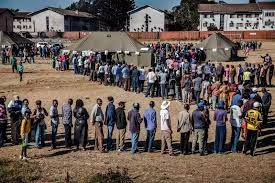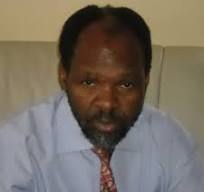Brenna Matendere
Harare—A murky deal for the supply of election materials for the 2023 harmonised elections negatively affected the management of the polls, analysts have said.
Recent media reports and audio as well as document leaks have revealed that local briefcase businesspeople aligned to the ruling Zanu PF—Wicknell Chivayo, Mike Chimombe, Scott Sakupwanya and Moses Mpofu—likely colluded with a South African supplier of biometric voter materials, REN-Form, to inflate tender and contracts prices by as much as 235 percent.

The Zimbabwe Electoral Commission (ZEC)—whose chairperson, Priscilla Chigumba, was actively involved in questionable pre-award engagements with the suppliers—awarded the tender under opaque circumstances.
It is yet to be established whether the job was subjected to normal tendering, but there is a high suspicion that it was not and the awardees, being close to President Emmerson Mnangagwa, benefited from political patronage.
The local partners in the deal did not have previous experience of supplying voting materials and the electoral body has not yet explained why it opted to include the briefcase businessmen to work with REN-Form, which has documented experience in the allocated job.
Analysts told NewsHub that the corrupt tender affected the quality and outcome of the 2023 elections that Zanu PF and President Mnangagwa won amidst sharp condemnation by the SADC, African Union (AU) and European electoral observer missions, among others.
Last year’s elections were initially scheduled to take place on 23 August alone, but serious shortages and delays in the supply of voting materials forced a spill into the next day.

Government critics said the delays led to voter suppression as electors were discouraged from casting their votes.
The ZEC had told election observer missions ahead of the polls that it already had sufficient voting materials but failed to explain the delays that affected Harare and Bulawayo most.
Eldred Masunungure, a professor of politics, told NewsHub that since the voter material tender was opaque and improperly awarded, management of the elections was tainted in turn.
“The long and short of it is that seldom does any murky process produce a clean and transparent outcome.
“In light of what appears to the naked eye to be unassailable evidence of a ‘ZECgate’, voters may be forgiven for suspecting that the electoral process itself was contaminated by these shadowy, underhand dealings bringing into question the integrity of the outcome of the August 2023 elections,” he noted.
Masungure urged an investigation into the impact of the ZEC deal.

“Perhaps a proper and thorough investigation is warranted to establish the link between this murkiness and the quality of the electoral process and its outcome,” he said.
Details in the public domain show that the ZEC chairperson, Priscilla Chigumba, participated in a meeting between Chivayo, officials from Better Brands Security that is owned by Sakupwanya, a Zanu PF legislator and artisanal miner, and REN-Form ahead of the parties formally agreeing to partner in supplying the commission with electoral material.
The US$40 million deal was okayed by the Office of the President and Cabinet (OPC), the Central Intelligence Organisation (CIO) and the Procurement Regulatory Authority of Zimbabwe (PRAZ).
Rashweat Mukundu, a media rights defender and political commentator, said there was a high chance that the corrupt tender given to undeserving tenderpreneurs could have played a part in the acute delays in the distribution of voting materials.
“The Chivayo and ZEC scandal tells us that state institutions responsible for elections are not free, hence they cannot dispense of their duties in a fair and transparent manner. Not only did Zec mess up by entering into this inflated deal with murky characters; there is a high chance that some commissioners were corrupted,” he said.
“In proper democracies, procurement of election materials is done in an open and transparent manner and political parties are even invited to view the process and see relevant templates. Tendering and selection of service providers is equally done in an open process.
“But then, this ZEC deal was not open and failed to meet the basics of election management. Instead, it became a cesspool of corruption and failure to deliver a free and fair election by Zec.
“Once election materials procurement is corrupted and contaminated, the election results are equally contaminated and corrupted. Nothing free and fair comes from such a shoddy process,” added Mukundu.
Vivid Gwede, another political analyst, said the scandal that is now being referred as ZECgate dented the integrity of the 2023 elections.
“Recent allegations (of underhand tendering for the elections) carry wider implications about the integrity of Zimbabwean elections,” he said.


Comments are closed.